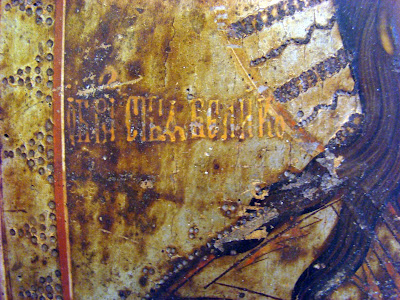My good friend ER, trying to show that even though he is of Southern Blood he supports Obama for President, went and opened those old saws about the brave and true southern soldiers and why we should honor their shibboleths and respect their sacrifice.
Well he got miffed and went and closed up his thread before I could put my 2 cent in on this continues canard.
You know ER, if it walks like a duck, and talks like a duck, but only weighs half as much as a duck, it is a canard.
So here it will be expounded upon just for the record.
First let me make clear I have ancestors and ancestral cousins and uncles and etc. Who fought and died and killed for both sides in the civil war. Family carrying my name had Farms burned north of Gettysburg and in the Shenandoah Valley. Family carrying my name are buried south of the R.R. tracks in the confederate section of the cemetery in Atlanta. Family carrying my name are listed on monuments on battlefields in Pennsylvania and Virginia. Our Family name was emblazoned on the sides of wagons pulled by Confederate horses full of Confederate supplies from farms run by my direct ancestors.
Secondly let me make clear. I am a combat veteran of the Vietnam War. I know what it feels like to have your service to you country degraded, ignored, and belittled. So I would never do that intentionally to any other soldier neither enemy nor ally.
That said, here is my point.
Both sides in the Civil War fought for their cause. Clear and simple. As always, soldiers on both side also fought for their buddies, and to stay alive.
To say that the Southern soldier fought for something other than the continuation of their way of life which demanded the enslavement of others is mystical bullshit.
Here is my source and here is its data:
JAMES M. MCPHERSON. For Cause and Comrades: Why Men Fought in the Civil War. New York, NY: Oxford University Press, 1997. 237 pages. $25.00
"Recent popular scholarship serves as a testimony to the vast variety of interpretations of the causes and purpose of the war, the motives that encouraged soldiers to fight, and the value of accomplishment in relation to the bloody cost. Many arguments remain based on traditional interpretations of events, while others are clearly subject to a political agenda. For many students of the Civil War, resisting the temptation to succumb to regional and/or cultural sensibilities, often separate and distinct from historical accuracy, remains a challenge. A consistent emphasis on the quality of evidence supporting any interpretation, however, continues as the historian's greatest mechanism for maintaining accuracy. Indisputably, the most reliable evidence for answering questions involving motives, perceptions, and the goals of Civil War soldiers are found in the various writings of the participants."
"With his new book, For Cause and Comrades, James McPherson both highlights the significance of the soldier's view and furthers his standing as one of our nation's foremost Civil War scholars. Employing more than 25,000 letters and nearly 250 diaries, 60 percent Union and 40 percent Confederate, McPherson offers an impressive array of evidence certain to enhance our understanding of why soldiers fought in the Civil War. "
........
"His analysis of Civil War soldiers has led him to conclude that they remained unique among modern fighting men. In McPherson's view, the ultimate motivating force that sustained the ordinary soldier through suffering and combat was a commitment to the cause. And, echoing a theme evident in much of his earlier work, McPherson finds that cause to be either the maintenance or the destruction of slavery. "
.....
"The preeminence of slavery as a motivating issue for the average Yankee may come as a surprise to many students of the Civil War who acknowledge that attitudes of white racial superiority remained ubiquitous in all regions of nineteenth-century America. A desire to preserve the Union and camaraderie have long been regarded as issues at least as important as slavery among Federal soldiers. McPherson acknowledges the importance of other issues, but argues that "larger ideals remained the glue that held the armies together" .
Some Southerners, especially those familiar with letters written by Confederate soldiers, may be inclined to question McPherson's conclusions about the motives of those who wore the gray. A belief that the South would thrive as an independent nation, as well as defense of home and honor, have long served as the primary ideals that motivated Confederate soldiers in the minds of many. McPherson admits that only 20 percent of the 429 Southern soldiers he examined voiced proslavery convictions, yet he defends his position by noting that "none at all dissented from that view"
"Most significantly, this book reminds us that most often the truth of a matter remains in the accounts of the eyewitnesses. Those interested in understanding the horror and sense of purpose that accompanied men in battle during the Civil War will find McPherson's study an essential addition to their libraries. "
These words are from a review by:
Samuel C. Hyde, Jr. is an associate professor of history at Southeastern Louisiana University.
The full review may be found at:
http://findarticles.com/p/articles/mi_qa3651/is_199707/ai_n8761527And of course other reviews may be found on Amazon.
It is time to put away these shibboleths of the South and move on into the 21st Century.
Yes they can be studied as history. But please not by those with an agenda.
Do we want change?
Well then this is one of those things that will have to change.





















































